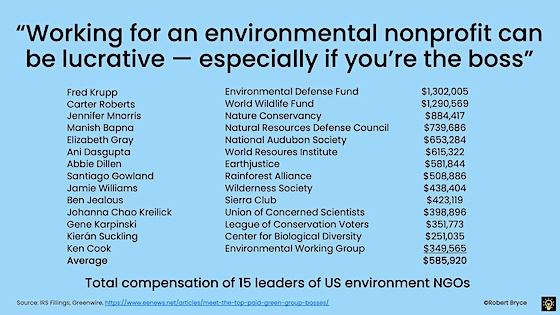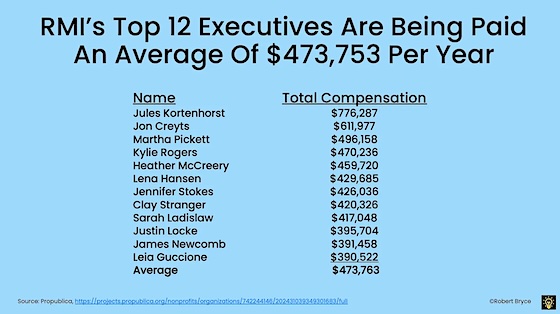A week ago, Bill Gates released a long memo on climate that got a great deal of attention. He said more or less what critics like Bjorn Lomborg have been saying for a long time: sure, increased levels of carbon dioxide will tend to increase global temperatures to some extent. But the increase will be modest and will not have catastrophic consequences. Rather than impoverish the world in a futile attempt to control the weather, we should focus on human well-being, which relies more than anything else on affordable energy.
You might think that such a moderate, sensible approach would meet with nothing but praise. But no: climate alarmists went crazy, denouncing Gates in the harshest terms. Why? Let’s turn the floor over to Robert Bryce, one of the world’s top energy experts:
Jeffrey Sachs, an academic at Columbia University’s Center for Sustainable Development, called Gates’ essay “vague, unhelpful, and confusing.” He went on to claim that proverty reduction and climate transformation are “utterly feasible…if the Big Oil lobby is brought under control.”
That is profoundly stupid. The idea that “the Big Oil lobby” is responsible for the fact that people want to be able to afford to drive their cars, heat their homes and buy products that are manufactured and transported efficiently, is idiotic.
A headline published in Politico claimed that Gates “soft-pedals climate.” In the New Republic, Laura Mauldin, an academic at the University of Connecticut who works in the department of “social and critical inquiry,” declared that Gates’ essay was a “great example of why we shouldn’t be listening to people like him.” She continued, “Reporting the thoughts of billionaires as news is as grotesque as the amount of wealth they’ve been allowed to accumulate.”
A revealing mingling of totally unrelated issues, with the chilling suggestion that the rest of us have somehow “allowed” Bill Gates to accumulate wealth.
Michael Mann, the climate catastrophist at the University of Pennsylvania, who may be the most discredited academic in America, told CNN that Gates “got all this backwards” and that there is “no greater threat to developing nations than the climate crisis.”
Why this hysterical reaction?
Why are the catastrophists so upset? Follow the money.
Remember, the first rule of the bureaucracy is to protect and extend the bureaucracy. And that’s what the NGO-corporate-industrial-media-academic-climate complex is — a vast bureaucracy that employs tens of thousands of people, many of whom are taking home hundreds of thousands of dollars per year in compensation. If policymakers adopt Gates’ humanist view — and recognize the world’s poor need hydrocarbons, and lots of them, to escape poverty — then catastrophists like McKibben, Mann, and myriad climate-focused NGOs could see their budgets shrink or disappear. In fact, that’s already happening. In February, one of Gates’ philanthropic arms, Breakthrough Energy, announced that it would reduce the grants it was providing to climate policy and advocacy groups.
I think that is exactly right. A lot of people are making very good money off the climate scam. Not by solving the climate “problem,” of course, but by keeping the pot endlessly boiling. Endlessly, or until they reach retirement age.
Bill McKibben, who has made a lucrative career off the climate, wrote about Bill Gates, “I feel quite strongly that we should pay less attention to billionaires.” But climate change has been good to McKibben:
McKibben’s fame — and his fortune— has been built on the catastrophist narrative that Gates is now debunking. Furthermore, McKibben is the living embodiment of the NGO-corporate-industrial-media-academic-climate complex. His credentials reveal a trifecta of the climate alarmist complex. He has founded two activist NGOs: 350.org and Third Act. He’s a contributing writer to the New Yorker, which gives him a prominent platform in the legacy media’s climate-alarmist echo chamber. And he’s an academic. As his bio at the New Yorker explains, McKibben is the “Schumann Distinguished Scholar in environmental studies at Middlebury College.”
McKibben’s new NGO, Third Act, is aimed at organizing people over the age of 60 “for progressive change.” What does that mean? As Influence Watch notes, the group “advocates for a total transition towards weather-based energy sources.” Furthermore, Third Act is a dark money group. It doesn’t reveal its funding, its funders, or the payments to its leaders. McKibben gets away with this because Third Act is a sponsored project of the Sustainable Markets Foundation, a New York City-based NGO that reported $49 million in revenue in 2023. McKibben’s patron doesn’t disclose the names of any of its donors.
And McKibben’s NGOs are a small part of the story:
Third Act is just one of more than 100 NGOs that focus on climate change. And those groups are spending staggering amounts of money. In 2023, I took a deep dive into the anti-industry industry and found that the top 25 anti-hydrocarbon, anti-nuclear groups in the US have annual revenues of about $4.5 billion.
That figure may be too low. A 2023 study by the Indiana University Lilly Family School of Philanthropy found an even larger number. That analysis found that US NGOs are now spending as much as $9.2 billion annually on “programs and activities that address climate change.”
When billions of dollars are being tossed around with zero accountability, it is no surprise that the people in charge of spending the money nip off a good bit for themselves. In some cases, more than $1 million a year. Robert Bryce gives us this helpful chart showing the reported salaries of the CEOs of the 15 largest environmental organizations:
The Rocky Mountain Institute is a radical anti-fossil fuel group whose funding has exploded in recent years:
RMI is a leader in the push to ban gas-fired stoves and furnaces in homes and businesses, even though 69% of voters oppose bans on gas stoves. Furthermore, RMI continues to promote silly claims, including a recent report on net zero (co-authored by Lovins), which claimed, “the fossil fuel era is over.” Despite RMI’s terrible track record, thanks to massive amounts of dark money, corporate money, and cash from the federal government, RMI’s budget has soared 16-fold since 2012.
Nice work if you can get it. Working for an organization that is funded by corporations, dark money and the federal government can be lucrative. RMI’s top dozen employees are paid an average of over $473,000 a year:
Understandably, grifters on the climate gravy train don’t want the public to understand that they have been wrong all along. When you have had a lucrative career for many years based on a false scientific theory, at some point it is too late to change your mind, even assuming that you once might have had the integrity to do so.
Robert ends his Substack essay by quoting Bill Gates’s conclusion:
So I urge that community, at COP30 and beyond, to make a strategic pivot: prioritize the things that have the greatest impact on human welfare. It’s the best way to ensure that everyone gets a chance to live a healthy and productive life no matter where they’re born, and no matter what kind of climate they’re born into.
Common sense: on the Left, it is toxic.


















